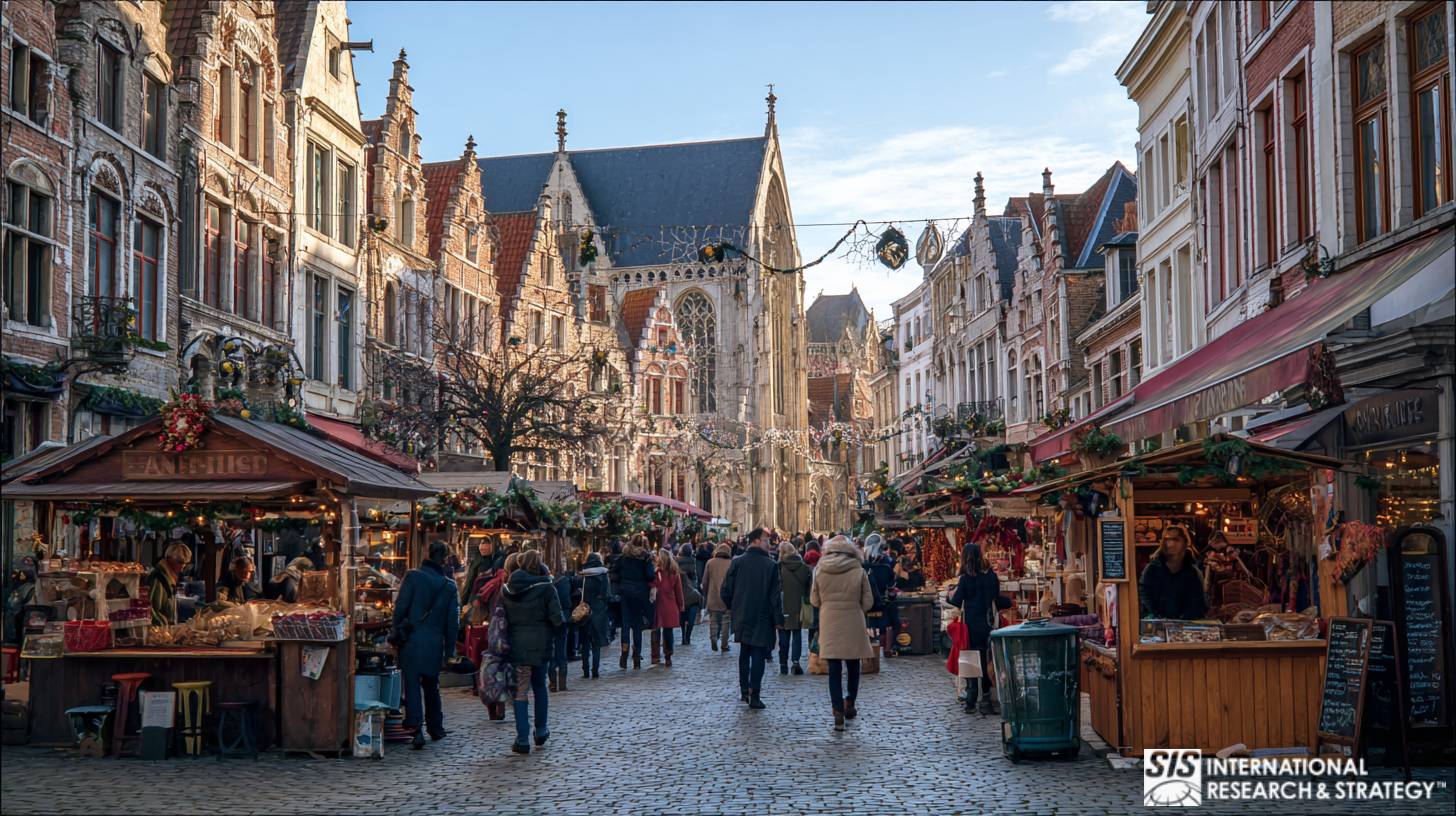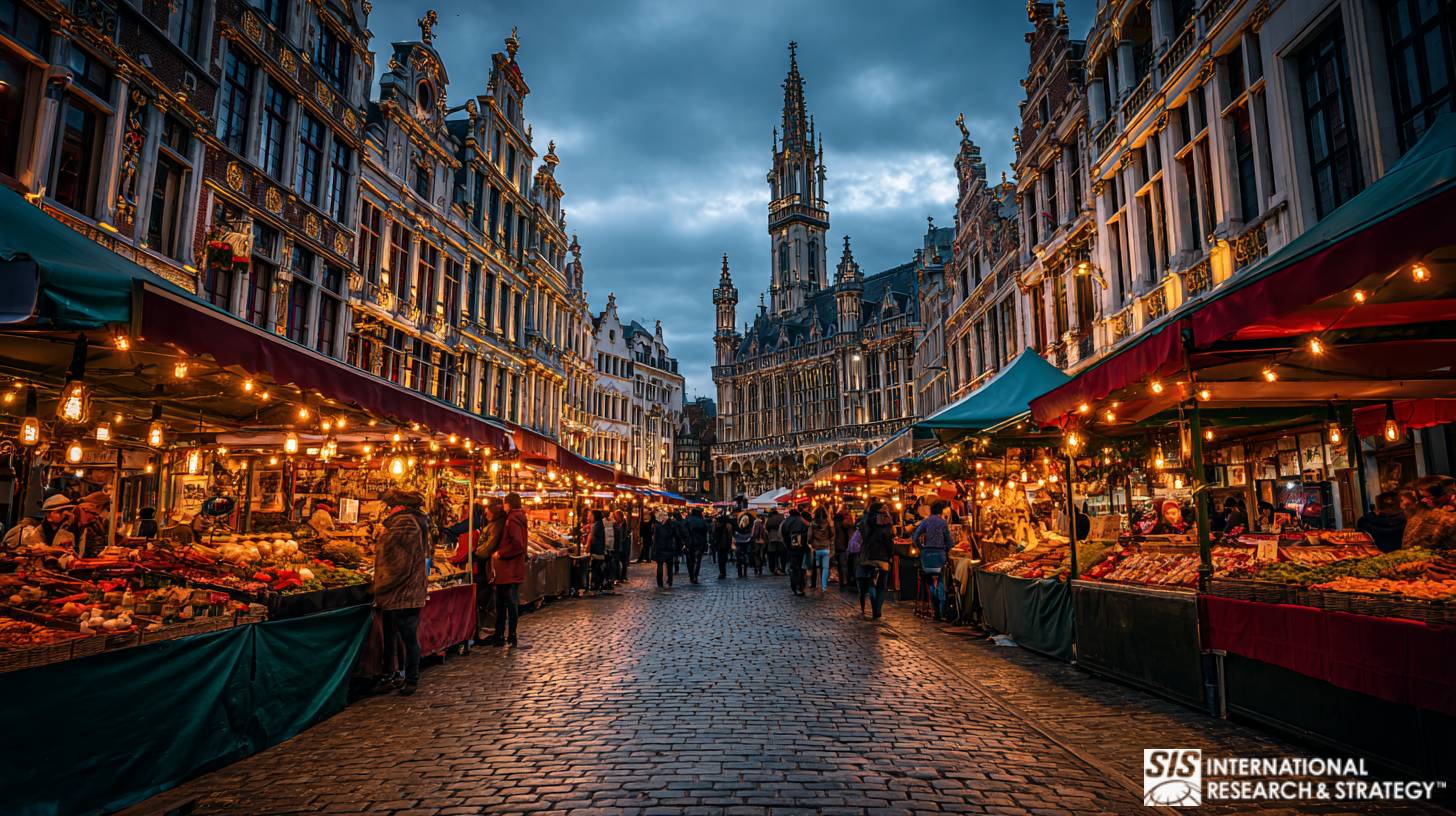Market Research in Belgium

Belgium has a modern economy, benefitting from its central geographic location.
French, Dutch and German are the three official languages of the Kingdom of Belgium. In addition, several non-official dialects and minority languages are spoken.
Have you ever wondered what makes a market truly unique? What if I told you that market research in Belgium offers insights that go far beyond traditional economic analysis? Our team at SIS International has spent years unraveling the economic complexities of this remarkable country.
Economic Complexity in a Strategic Hub
What makes Belgium truly remarkable is its ability to serve as a microcosm of European economic trends while maintaining a distinct national identity. Our 40 years of global experience have taught us that the most valuable insights often emerge from markets that require deeper, more nuanced investigation.
We’ve supported everything from specialized European enterprises to global corporations in understanding the nuanced Belgian market. Our research methodologies blend quantitative data analysis with qualitative cultural insights, ensuring that our clients understand not just the numbers, but the strategic context behind those figures.
Key Economic Sectors

The economic composition of Belgium is surprisingly robust and diverse. Our specialists have identified several critical sectors that make market research in Belgium particularly compelling:
- Chemical and Pharmaceutical Industries: This sector is a global powerhouse. Our research shows a sophisticated ecosystem of research, development, and manufacturing that attracts international investments. Companies like UCB and Janssen Pharmaceutica have positioned Belgium as a critical global player in life sciences.
- Technology and Innovation: Belgium has developed a cutting-edge technology ecosystem. We’ve uncovered a network of innovation hubs, particularly in cities like Brussels, Antwerp, and Ghent, that are driving advances in artificial intelligence, biotechnology, and digital technologies.
- Logistics and Transportation: Leveraging its strategic geographical position, Belgium has created a world-class logistics infrastructure. Our market research in Belgium has tracked how the country has transformed its central European location into a competitive advantage, with the port of Antwerp being one of the largest and most sophisticated in the world.
Major trade partners
European Union countries, primarily the Netherlands, Germany, Great Britain and France, make up three-quarters of Belgium’s trade partners. The United States is also a major trading partner. Products and goods from EU nations enter Belgium without any duties or tariffs.
Belgium has a unique perspective on international markets and world trade, since it is home to over one hundred global organizations and the center of operations of the European Union and the North Atlantic Treaty Organization (NATO). Each of the three Belgian regions has the authority to grant financial incentives and other inducements to attract foreign goods and services, in addition to the national trade agreements.
Stable economy
Belgium has an open economy, providing a stable environment for direct foreign investment. There is no discrimination between foreign and local businesses or between subsidiaries and branches. Foreign entities can therefore enjoy all the privileges conferred on their domestic counterparts, and the legal responsibilities are the same. There are basically no foreign exchange restrictions on the transfer of profits or capital.
The linguistic, cultural and economic differences of Belgium’s three regions have a strong impact on how business is conducted. With their relatively balanced income distribution, and high per capita income, Belgians enjoy widely-spread purchasing power. Belgium is often seen as a test economy, since with its ethnic and linguistic diversity it reflects the general European consumer and economy: a mini-Europe that is easier to enter than most of the larger markets in the region.
Opportunities and Challenges in Market Research in Belgium

Throughout my four decades leading SIS International, I’ve learned that true market intelligence isn’t about avoiding challenges—it’s about transforming them into strategic opportunities. Market research in Belgium presents a unique landscape that demands both analytical precision and creative thinking.
Opportunities: The Hidden Gems of Belgian Market Research
1. Economic Diversification
When most researchers look at Belgium, they see a small European country. But our team sees a world of potential. Market research in Belgium reveals an economic ecosystem that is both resilient and innovative:
- Multilingual Advantage: Belgium’s linguistic diversity (Dutch, French, and German) creates unique market segmentation opportunities that are rarely found in other countries.
- Innovation Ecosystems: Brussels, Antwerp, and other major cities have developed robust innovation hubs that attract global technology and research investments.
- Strategic Positioning: As the headquarters of the European Union and NATO, Belgium offers unparalleled insights into European policy, economic trends, and international business dynamics.
2. Strategic Global Positioning
Belgium’s unique location offers remarkable advantages:
- Central hub in Western Europe
- Sophisticated international infrastructure
- Gateway to European and global markets
- Complex regulatory environment that demands deep market understanding
Challenges: The Complexity That Demands Expertise
1. Regional Economic Complexities
Market research in Belgium isn’t straightforward. The challenges include:
- Distinct economic characteristics of Flanders, Wallonia, and Brussels
- Complex political and linguistic divisions
- Varied economic performance across regions
- Intricate regulatory landscapes
2. Data Collection Hurdles
Conducting comprehensive market research in Belgium comes with significant challenges:
- Multilingual data collection
- Regional statistical variations
- Complex business reporting structures
- Nuanced cultural communication barriers
3. Economic Volatility
The Belgian economy is sensitive to:
- European Union economic policies
- Global technological disruptions
- International trade fluctuations
- Rapid technological and innovation shifts
Competitive Advantage: The SIS International Difference
Why do 70% of Fortune 500 companies trust us? Because we don’t just observe markets—we decode them. Our market research in Belgium goes beyond surface-level data, providing strategic narratives that transform challenges into competitive advantages.
We’ve supported clients ranging from specialized European enterprises to global corporations, helping them navigate the nuanced Belgian market with confidence and precision.
Our Facility Location in New York
11 E 22nd Street, Floor 2, New York, NY 10010 T: +1(212) 505-6805
About SIS International
SIS International offers Quantitative, Qualitative, and Strategy Research. We provide data, tools, strategies, reports, and insights for decision-making. We also conduct interviews, surveys, focus groups, and other Market Research methods and approaches. Contact us for your next Market Research project.

